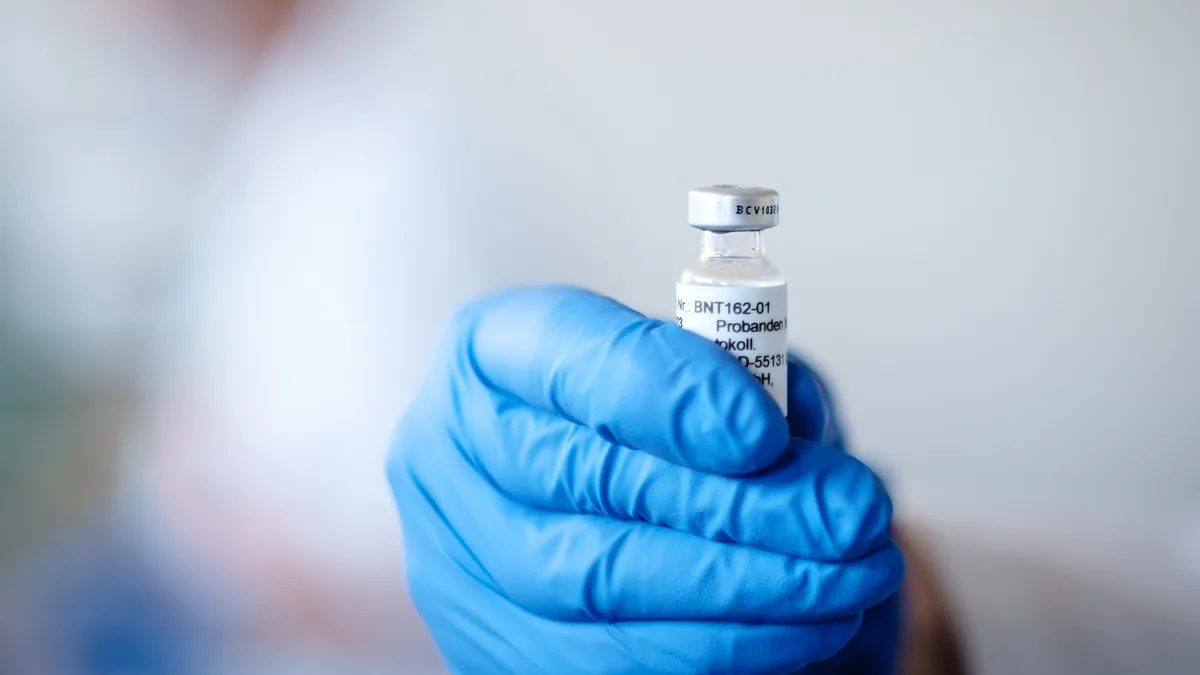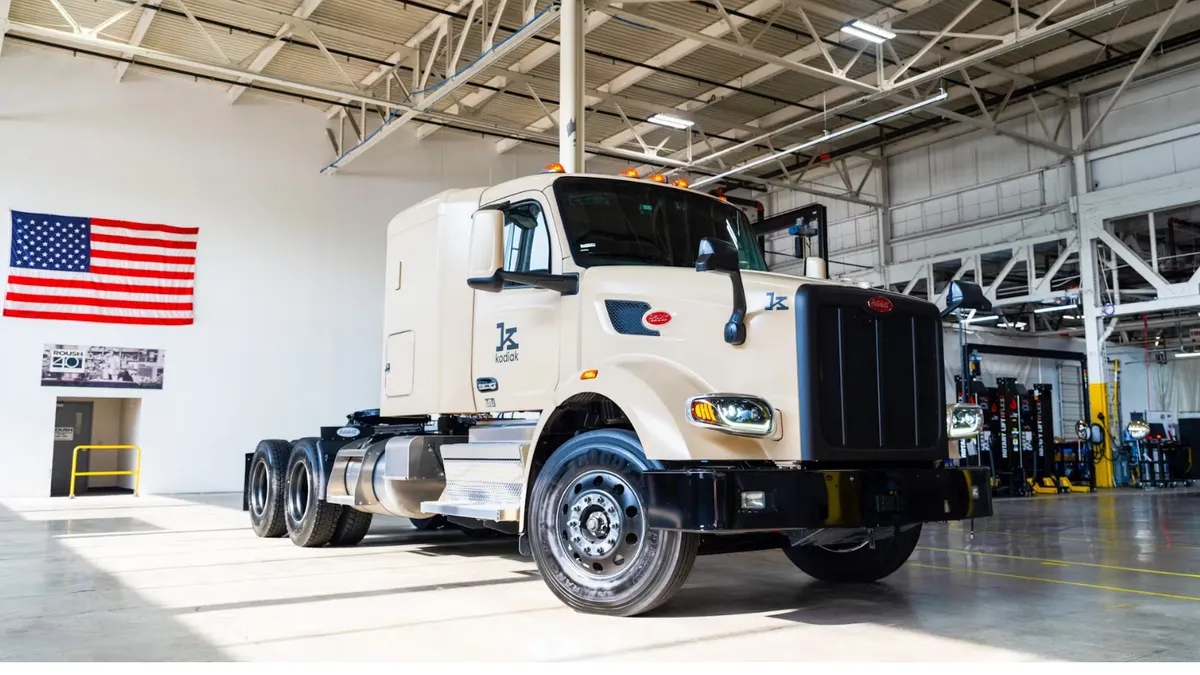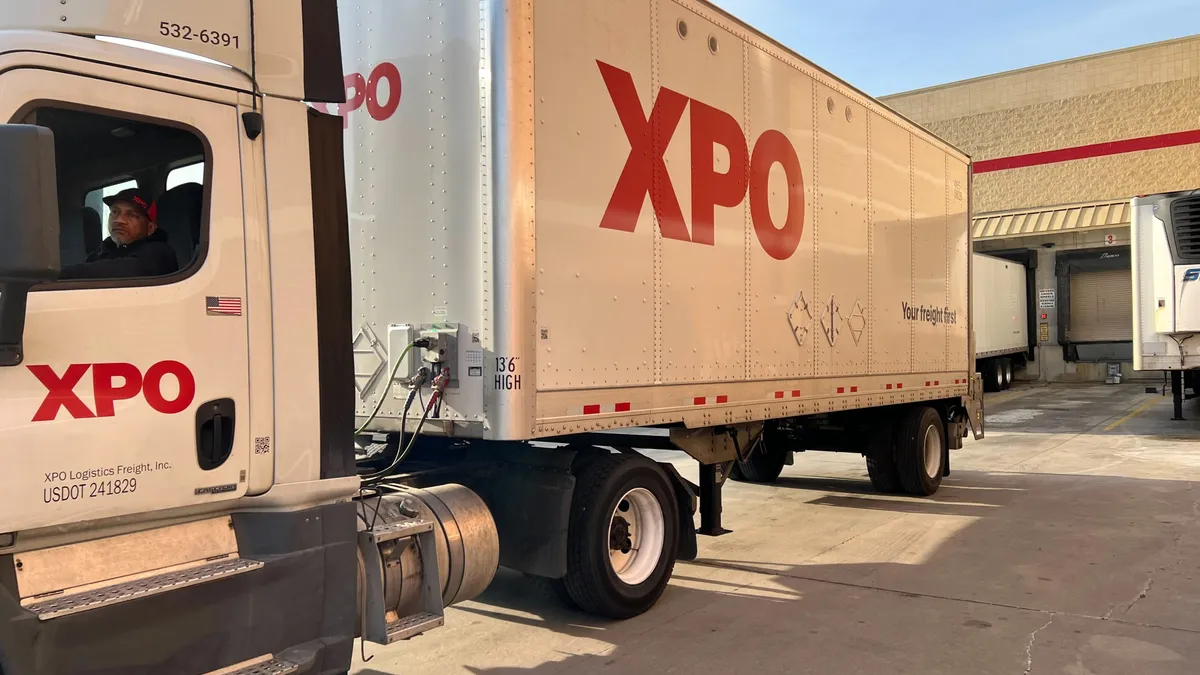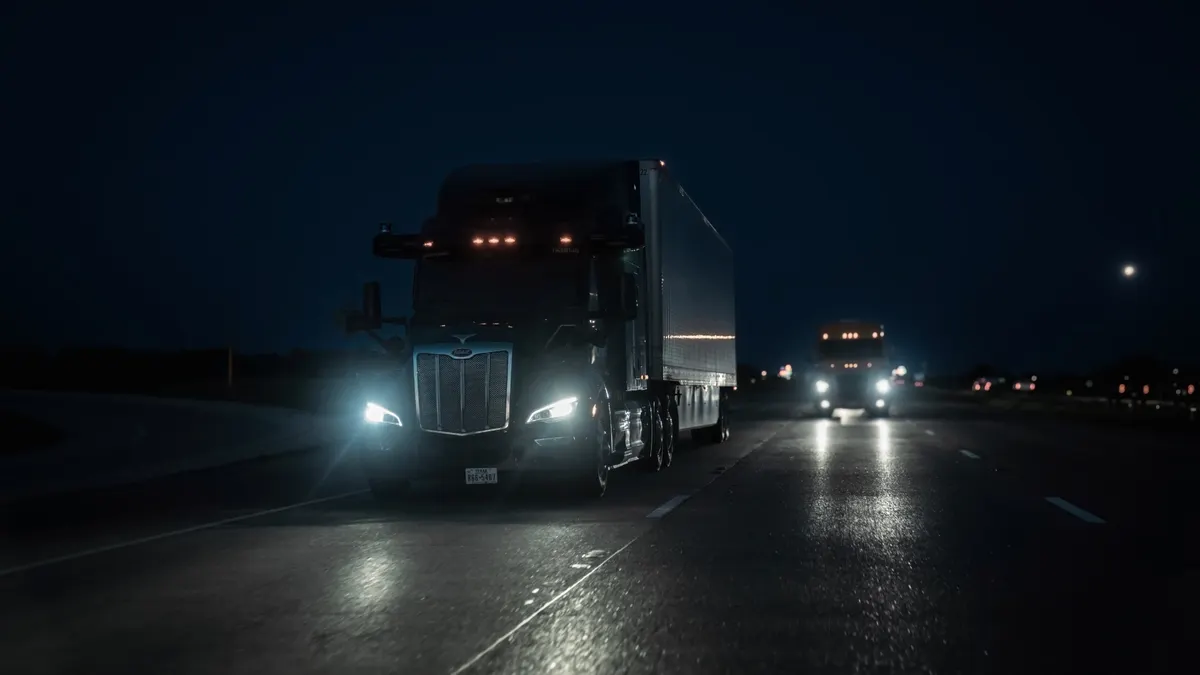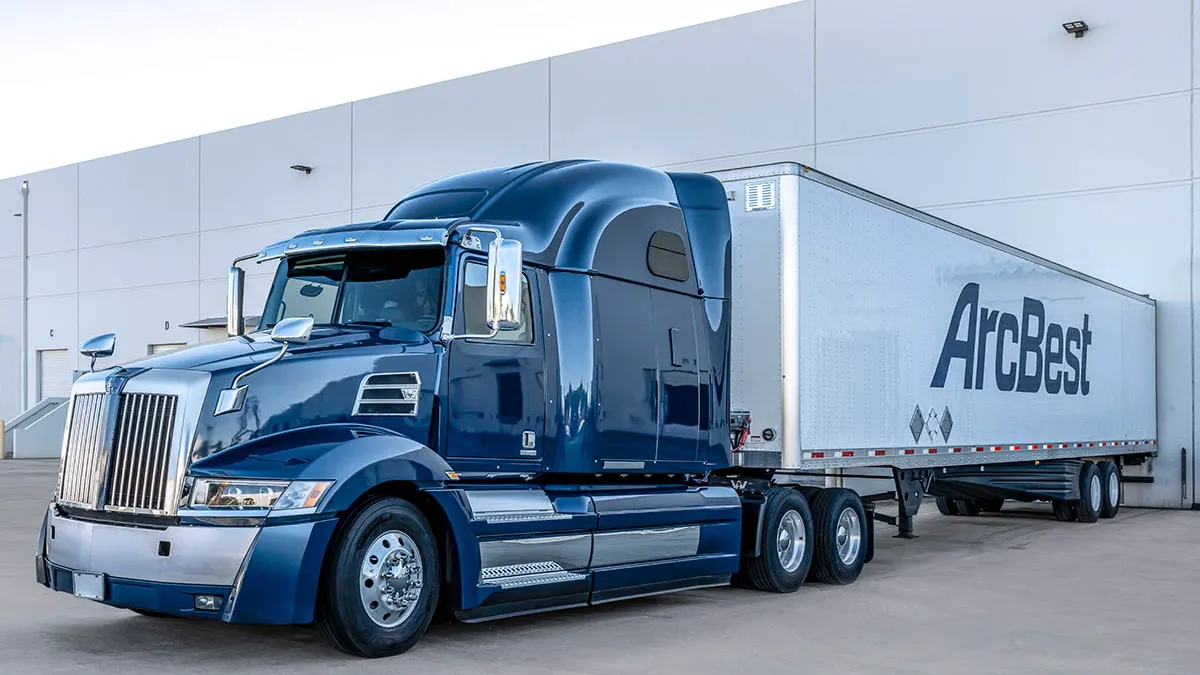When transporting coronavirus vaccine doses that require ultra-freezing temperatures, trucking will be able to draw on years of experience in logistics, specialized deliveries and even transporting ice cream, according to industry officials.
The coldest reefers can get down to about zero degrees Fahrenheit, which is ideal for ice cream. But even the most experienced temperature-sensitive carriers are in for a tall task regarding Pfizer's and BioNTech's coronavirus vaccine. That will require a storage temperature of 94 degrees below zero Fahrenheit.
The reality is, no reefer on the market could keep the vaccine that cold, said Ben Wiesen, president of Carrier Logistics. Carriers will have to use special containers and specialized transportation.
The packages will have to use dry ice to keep the vaccine ultra-cold, according to UPS Healthcare President Wes Wheeler, who outlined the process in a June press release. A number of U.S. carriers have experience hauling sensitive pharmaceuticals, said Wiesen, and can provide the security and chain of custody procedures needed.
"We definitely have a lot of capacity and capability to safely store and transport these types of materials."

Lowell Randel
Senior Vice President of Government and Legal Affairs for the Global Cold Chain Alliance
Lowell Randel, senior vice president of government and legal affairs for the Global Cold Chain Alliance, said the transport and storage infrastructure is ready.
"We definitely have a lot of capacity and capability to safely store and transport these types of materials," said Randel.
The trucking industry has experience with sensitive frozen cargo, such as ice cream, Wiesen said. Ice cream isn't just simply put into very cold reefers. It requires special temperatures, well below freezing, in the haul. The logistics of that kind of move, to make sure thousands of dollars of product is not melted or otherwise spoiled, is considerable.
"Ice cream gets moved at zero degrees [Fahrenheit] and that's challenging," said Ben Wiesen, president of Carrier Logistics.
Pfizer's vaccine uses messenger RNA to instruct immune cells to begin the process of creating antibodies. The mRNA needs to be stored in extremely cold temperatures, to prevent degradation. It puts Pfizer at a logistical disadvantage, as COVID-19 vaccines from AstraZeneca can be stored for half a year at temperatures between 36 degrees and 46 degrees Fahrenheit, according to Fierce Pharma. And Moderna has a mRNA-type vaccine that can be stored for 30 days at those same temperatures. That's a standard range for a reefer.
Who will move the vaccine?
So far, three carriers have won Pfizer's vaccine routes. The companies — DHL, UPS and FedEx — all have large supply chain networks of their own, and they have the means to transport ultra-cold cargo.
Pfizer divulged to Supply Chain Dive last month some details on transporting the vaccine, once approved. About 12 trucks will load up with the vials and leave the company's Michigan facility on a daily basis. Pfizer confirmed then that there are no other U.S. logistics supply chain partners beyond DHL, FedEx and UPS.
UPS declined to comment on how it would handle the task. DHL said the company could not arrange an interview by deadline.
FedEx said its Express segment will use refrigerator trucks and trailers, warehousing, thermal blankets, and temperature-controlled containers to move the vaccines and other bioscience shipments around the world. The carrier said it has added more than 10 secure cold-chain facilities across its global network in the past three years. In total, it has more than 90 cold chain facilities across the Americas, Asia, Australia and Europe.
"To complement our existing cold chain capabilities in support of the vaccine distribution, we have added ultra-cold freezers, and enhanced our freezer and refrigerator capacity at strategic locations throughout the country over the past several months," the company said.
Pfizer may have picked three of the biggest carriers, who have plenty of supply chain capabilities. But there are many options, according to Chris MacDonald, senior vice president and general manager of the Americas for Orbcomm, a machine-to-machine communications firm that works with fleets that move sensitive cargo.
"There are many specialized pharmaceutical-specific fleets that have the technology to comply with the vaccine requirements," said MacDonald. " My estimation is others will follow and add technology and gain compliance as well."
Trucking already plays a major role in the transport of vaccine distribution, "as thousands of pharma-based loads are delivered by our customers daily," said MacDonald, who noted the industry moved other pandemic-flu vaccines. "The past time-critical vaccines were all managed and delivered by the trucking industry and cold-chain supply compliant companies."
Nevertheless, the U.S. Department of Transportation announced on Tuesday it would support supply chain networks "by granting a nationwide exemption to hours-of-service regulations for trucking companies and commercial drivers providing direct emergency assistance." The FMCSA's emergency declaration was also extended to support emergency transportation of vaccines, medical supplies and equipment related to the prevention of COVID-19, according to DOT.
Communication from above
Chain of custody is another issue and, during transport, Pfizer and the government will not want to lose visibility for even a minute as the vaccine is hauled, according to MacDonald. MacDonald's company not only wires the trailer and truck with Bluetooth and cellular devices, but it makes sure the truck and trailer can communicate with satellites.
"In the pharmaceutical world, there's much more regulation."

Chris MacDonald
Senior Vice President and General Manager for the Americas at Orbcomm
Part of the reason for satellite communication is the pharmaceutical company and the government want assurances that the cargo can be accounted for in every second of transport. In that respect, the pharmaceutical sector demands more attention than the regulated food sector from the trucking industry.
"In the pharmaceutical world, there's much more regulation," said MacDonald.
Pharmaceuticals can also be valuable to would-be thieves. MacDonald said during the 2009-2010 swine flu outbreak, one pharmaceutical shipper would send out two "decoy" trucks for every truck that had vaccination doses.
MacDonald said Orbcomm has clients that will likely be part of the Pfizer distribution plan. He said the movement of such dry ice-packed pharmaceuticals is not a usual request, and that he suspects the federal government will help in any way it can to ensure security and proper delivery.
"It's very rare," said MacDonald. "This one is going to be a challenge for the shipper."
But MacDonald said it could be worth the haul, because moving the coronavirus vaccine will be a high-profile task.
"Obviously if a fleet plays a role in the distribution it should get them exposure in order to deepen their pharma-based customer list," said MacDonald.


